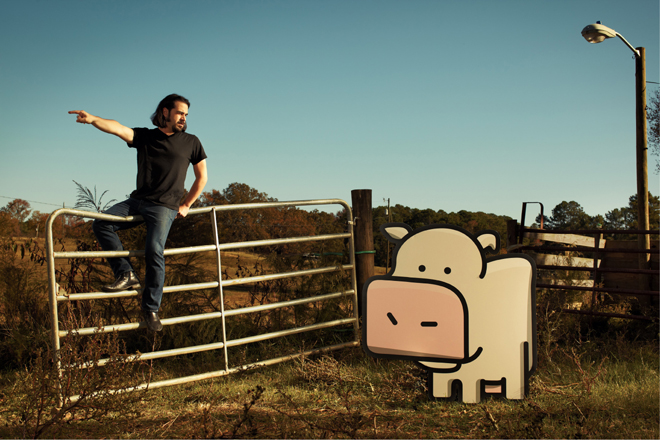
The January issue of Wired includes a long read on Ian Bogost's Cow Clicker:
Bogost threw together a bare-bones Facebook game in three days. The rules were simple to the point of absurdity: There was a picture of a cow, which players were allowed to click once every six hours. Each time they did, they received one point, called a click. Players could invite as many as eight friends to join their “pasture”; whenever anyone within the pasture clicked their cow, they all received a click. A leaderboard tracked the game’s most prodigious clickers. Players could purchase in-game currency, called mooney, which they could use to buy more cows or circumvent the time restriction. In true FarmVille fashion, whenever a player clicked a cow, an announcement—”I’m clicking a cow“—appeared on their Facebook newsfeed.
And that was pretty much it. That’s not a nutshell description of the game; that’s literally all there was to it. As a play experience, it was nothing more than a collection of cheap ruses, blatantly designed to get players to keep coming back, exploit their friends, and part with their money. “I didn’t set out to make it fun,” Bogost says. “Players were supposed to recognize that clicking a cow is a ridiculous thing to want to do.”
Bogost launched Cow Clicker during the NYU event in July 2010. Within weeks, it had achieved cult status among indie-game fans and social-game critics. Every “I’m clicking a cow” newsfeed update served as a badge of ironic protest. Players gleefully clicked cows to send a message to their FarmVille-loving friends or to identify themselves as members of the anti-Zynga underground. The game began attracting press on sites like TechCrunch and Slashdot.
And then something surprising happened: Cow Clicker caught fire. The inherent virality of the game mechanics Bogost had mimicked, combined with the publicity, helped spread it well beyond its initial audience of game-industry insiders. Bogost watched in surprise and with a bit of alarm as the number of players grew consistently, from 5,000 soon after launch to 20,000 a few weeks later and then to 50,000 by early September. And not all of those people appeared to be in on the joke....